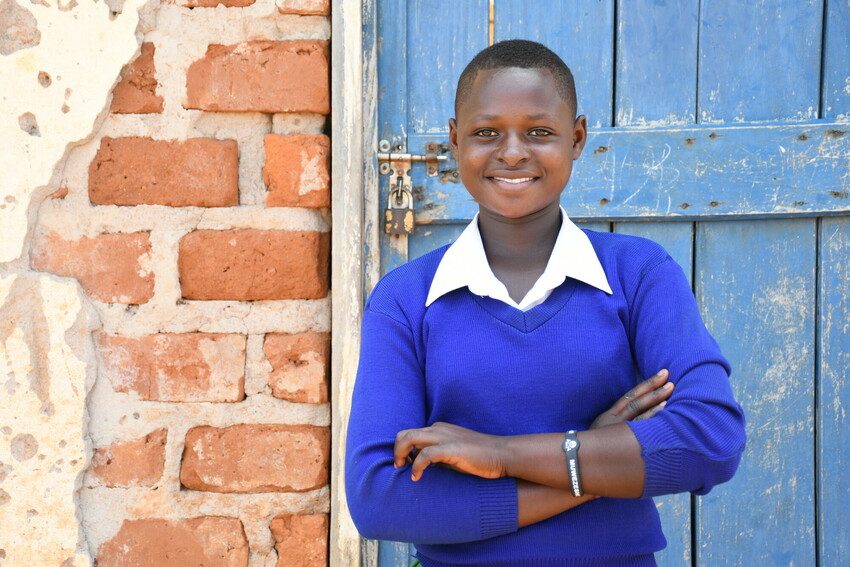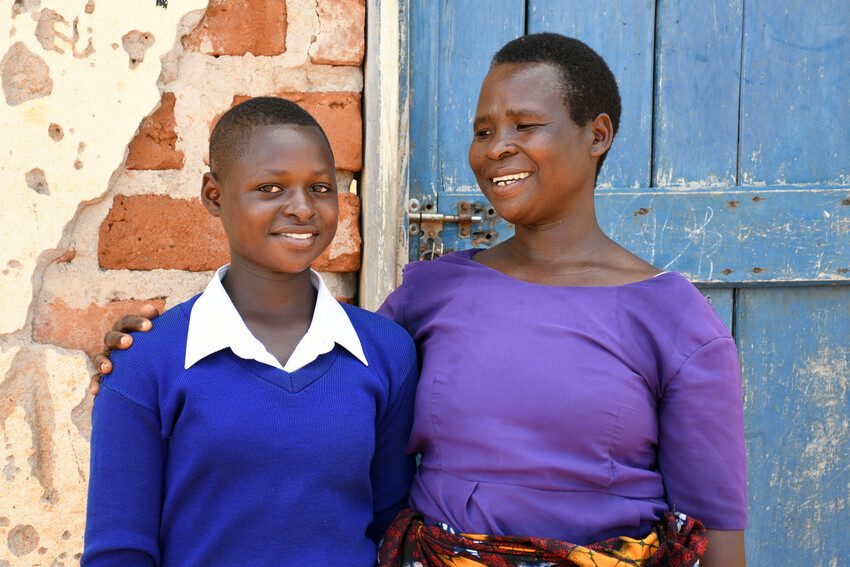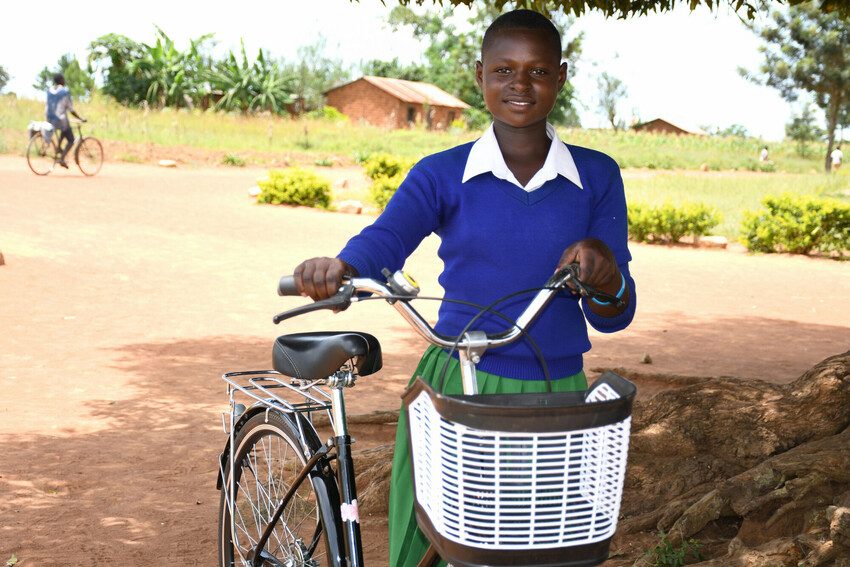Hellen: I am finally able to go to school at 14
Hellen’s journey into education at 14-years-old has raised community awareness of the importance of education for girls and is inspiring other families to educate their daughters as well.

Until the age of 14, Hellen from Tanzania had never been to school. She spent most of her days helping her mother with the household chores or working in the fields. Her family didn’t see the importance of educating girls, feeling it was a waste of time and money as girls are married off when they reach adolescence and soon after become mothers.
“I used to stand at the edge of the road every morning and watch my brothers and their friends go to school. I wanted to go too, but I thought school wasn’t for girls like me. My mother was preparing me for marriage and taking care of the family,” Hellen explains.
Changing mindsets
Poverty is the greatest challenge to girls’ education in Tanzania. Only 27% of girls complete upper secondary school and among the poorest children, this falls to 6%.
The need to raise awareness of the benefits and importance of education, particularly for girls in Hellen’s community was crucial in changing this tide. Community meetings and awareness sessions with adolescent girls and their families became crucial and slowly, change, especially in attitude and mindset, starting happening.
Hellen’s tide, for example, began to change after her parents attended one of the community awareness sessions and gradually started to understand the importance of education for girls. Over time, they became more open to the idea of letting Hellen attend school and finally agreed that she could be enrolled.
“I never thought my parents would change their minds about marrying me off. They finally allowed me to go to school, just like the boys,” says Hellen.

A brighter future for girls
Hellen is one of more than 1,400 out-of-school girls aged between 9-15 years old in her home area who went back to school following action by local government authorities with support from Plan International under the Keeping Adolescent Girls in School project.
“I am happy to finally be starting school for the first time in my life. For years, I had dreamt of the opportunity to enter the classroom and learn, but I never thought it would be possible. I now have the chance to pursue my education and become a teacher,” shares Hellen happily.
“I never thought my parents would change their minds about marrying me off. They finally allowed me to go to school, just like the boys.”
Hellen

Hellen’s family say they have started to see a positive change in their daughter since she started school, and are proud of her achievements. Hellen’s story has become an inspiration for other families in their village with 13 other families now allowing their daughters to go to school.
About the project
Keeping Adolescent Girls in School (KAGIS) is a five-year project (May 2021- September 2026) that aims to ensure girls realise their rights to safe, quality, education.
The project centres on increasing girls knowledge on their rights, creating an enabling environment amongst adolescent boys, parents and communities for girls’ participation in decision-making and increasing access to financial and non-financial resources to support adolescent girls’ education.
The project also works to improve the quality of teaching and learning in schools, increase the availability of school facilities such as latrines, access to adolescent friendly sexual and reproductive health services and provide re-entry points for out-of-school girls – all of which will increase the opportunities for girls to acquire a full quality basic education.
Project impact in numbers
- 113,201 Total participants reached in 3 years including out-of-school girls and boys
- 88.5% School attendance rate in 2023 having risen from 75.4 in 2022
- 1,888 Trained change makers in both Geita and Kigoma
- 46,214 people involved in soccer competitions as part of advocacy efforts 15,362 of whom were girls
- 6.2M Listenership of their girls radio programme spread across multiple regions
- € 9.3mil Budget
.
Categories: Education


